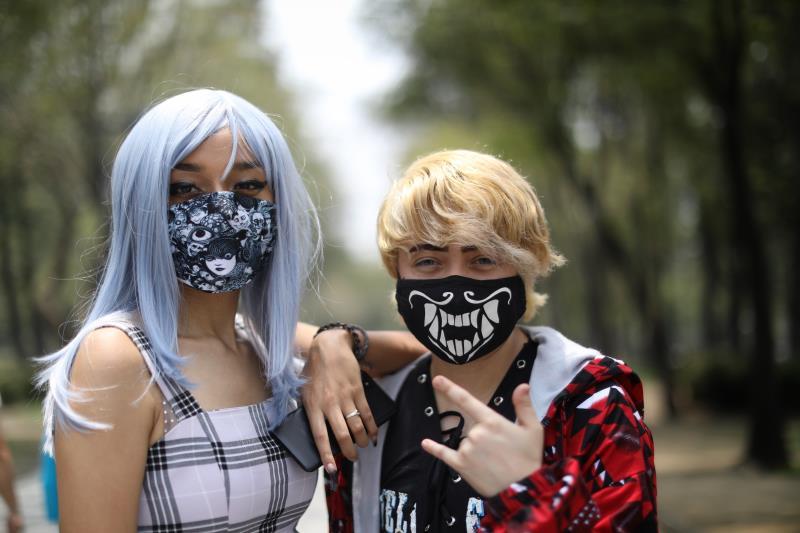RIO DE JANEIRO, BRAZIL – (EFE) More than 25.6 million young people are called to the polls this June 6 in the largest mid-term elections in Mexico’s history. The vote is considered key but uncertain because of their apparent disinterest in politics, even though they support movements such as feminism or the defense of the LGBT community.
“I have realized after several years that it is insignificant who to vote for. I understand the point of decision making, but I really question what point is people’s decision,” says Iñaki, a 23-year-old who recognizes his scant interest in politics.

However, Iñaki emphasizes the importance he attaches to the eradication of violence, feminism, or the rights of the LGBT community.
“We young people are generating a change that for me is very valuable. (…) It is important that we generate it because, at some point, I want to think that we will be in a position to generate bigger changes,” he added.
Like him, 25,687,082 young people between 18 and 29 years old will be eligible to vote in the next elections. Some 3.5 million are first-time voters. Young people represent about 30% of the total eligible electorate.
Many feel that the political class does not take them into account. “We all know that most of the population is young in Mexico,” Martha Singer, a political scientist at the National Autonomous University of Mexico (UNAM), told Efe.
LITTLE PARTY INCLUSION
it seems that the political powers that be do not want to know about youth. For Singer, one of the problems facing the June 6 elections is that there is very little involvement of young people by political parties in their tasks.
“They are not concerned about their agenda, their problems, nor about including them in the ideas or in the aspects to be taken into account even in their campaign promises, but they do not include them as part of their political assets and take advantage of the willingness to participate that many of them have,” considers the expert.
Movimiento Regeneración Nacional (Morena), the party in power, is preparing for elections in which its strongest opposition is Va por México, a coalition formed by the Partido Acción Nacional (PAN), the Partido Revolucionario Institucional (PRI) and the Partido de la Revolución Democrática (PRD).
Of the young people polled on the street, none feel completely identified with any of the current political parties, and most are distanced from the more institutional side of politics.
CLEAR URGENT ISSUES
Among the most urgent issues to be resolved, young people cite femicides and support for companies to generate more jobs.
Valeria, 17, considered that another relevant issue is that people “be more open” to differences. Alvar, 22, said that something key would be to protect the rights of the LGBT community and women and provide job opportunities for young people.
“There are young people who want to participate in the parties, and yet they remain there in the less important tasks, in the tasks where cheap labor is needed, and that means that since there are no spaces for promotion within the parties, they remain gravitating to the edges and then they are expelled,” Singer said.
Young people willing to participate in politics often choose the path of activism, something “not very serious” for a certain part of the political sphere that considers them “immature”.
“Immature except when we see them in the streets with their ideas very clear. They have a lot of clarity, much more information than one would assume, and look at the girls who are leading the mobilizations in favor of women’s rights,” Singer commented.
NO TANGIBLE RESULTS
In 2018, many young people went to the polls excited about the “Fourth Transformation” project led by Andrés Manuel López Obrador, the current president, a 67-year-old man who included this sector of the population in his campaign speech.
According to Singer, the president has maintained part of that discourse related to defending those who study, to prevent young people from losing motivation and joining the ranks of organized crime or drug trafficking.
For this reason, López Obrador is promoting scholarship programs so that those who study can work a few hours a day and receive support from the government. Singer believes that, although it is still early to see the results of these policies, she does not perceive a real change in the opportunities offered to her students.
Source: efe

